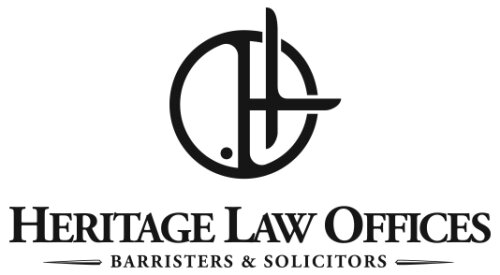Best Probate Lawyers in Edmonton
Share your needs with us, get contacted by law firms.
Free. Takes 2 min.
List of the best lawyers in Edmonton, Canada
About Probate Law in Edmonton, Canada
Probate law in Edmonton, Canada refers to the legal process overseeing the distribution of an individual's estate upon their death. The individual's will is scrutinized by the court to prove its authenticity, validity, and to ensure no disputes arise among beneficiaries. This formal approval process by the Surrogate Court ensures all financial obligations such as tax obligations have been taken care of properly.
Why You May Need a Lawyer
Complex estates, contesting of the will, and legal documentation can be difficult for an everyday individual to navigate on their own and necessitate the need for a probate lawyer. In case the deceased did not leave any will or it fails to name an executor, or the named executor is not willing or able to carry out the required duties, a lawyer will be needed. Lawyers also help in managing disagreements between the executor and the estate’s beneficiaries and dealing with debts and taxes of the estate.
Local Laws Overview
Edmonton probate laws are governed by the Wills and Succession Act and the Estate Administration Act amongst others. These laws make it clear that if an individual dies without a will, known as intestate, a certain division of the estate including real estate, personal property, and investments are set for immediate family. These laws also explain how an executor or administrator is appointed by court to handle distribution, debts, and taxes. The law clearly demarcates a difference between small estates (under $25,000) and large estates, each having different processes.
Frequently Asked Questions
What is the probate process in Edmonton?
Probate process starts with an official application to the court which includes details of the deceased, an original death certificate, a copy of the original will and a thorough inventory of the estate. Once the court approves of the application made, the executor can distribute the assets as directed in the will.
Do all estates go through probate in Edmonton?
Not all estates require probate. For small estates or estates where all assets are jointly owned, probate may not be required. Legal advice should be sought to understand if probate is necessary in your situation.
How much are probate fees in Edmonton?
Probate fees, also known as probate tax or estate administration tax, in Edmonton are approximately $525 for estates valued over $25,000.
How long does probate take in Edmonton?
The time frame of probate differs with each individual case. Usually, it takes about 6 to 18 months but can take longer if there are disputes or complexities.
Can I handle probate myself?
It can be challenging to deal with probate by yourself. It is especially difficult when the estate has debt, multiple property investments, businesses, or is expected to be contested. In such cases, it is highly recommended to consult with a probate lawyer.
Additional Resources
Alberta Courts and Service Alberta websites can provide useful information and downloadable forms concerning probate in Edmonton. The Law Society of Alberta may also assist in finding a practicing lawyer in this area of law.
Next Steps
If you find yourself in need of a probate lawyer, it is recommended to do thorough research, ask for recommendations and set up consultations with multiple lawyers to find the right fit for you. Understand your situation, the complexities involved, and how comfortable you feel with the lawyer before making a decision.
Lawzana helps you find the best lawyers and law firms in Edmonton through a curated and pre-screened list of qualified legal professionals. Our platform offers rankings and detailed profiles of attorneys and law firms, allowing you to compare based on practice areas, including Probate, experience, and client feedback.
Each profile includes a description of the firm's areas of practice, client reviews, team members and partners, year of establishment, spoken languages, office locations, contact information, social media presence, and any published articles or resources. Most firms on our platform speak English and are experienced in both local and international legal matters.
Get a quote from top-rated law firms in Edmonton, Canada — quickly, securely, and without unnecessary hassle.
Disclaimer:
The information provided on this page is for general informational purposes only and does not constitute legal advice. While we strive to ensure the accuracy and relevance of the content, legal information may change over time, and interpretations of the law can vary. You should always consult with a qualified legal professional for advice specific to your situation.
We disclaim all liability for actions taken or not taken based on the content of this page. If you believe any information is incorrect or outdated, please contact us, and we will review and update it where appropriate.









